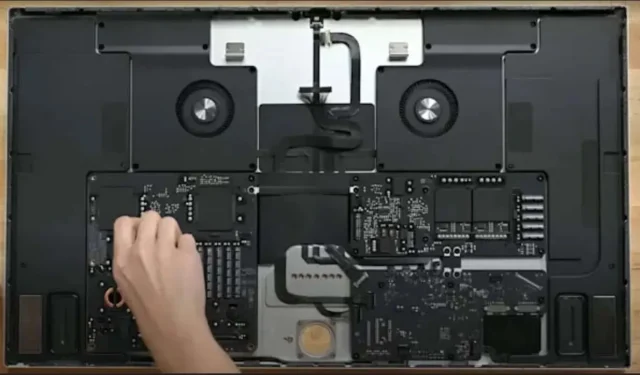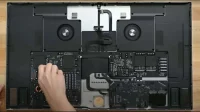iFixit takes apart the Apple Studio Display and reveals a true marvel of engineering.
It may look like a redesigned iMac, but the new Apple Studio Display is a much more complex device when you open its hood. Compared to the Apple-branded All-in-One, this monitor is about 50% thicker, and knowing the Cupertino company, we suspect there’s a reason for that. Explanations are provided by iFixit.
iFixit dismantles Apple Studio Display
After tearing down the equally recent Mac Studio recently, the iFixit teams dismantled the Studio Display piece by piece, screw by screw, to reveal everything that could be found. And we can only marvel at all the engineering that goes into developing this first dedicated monitor since Pro Display XDR. What makes the Studio Display thicker than the iMac is the incredibly complex power board. Unlike the iMac, the Studio Display does not require an adapter to power it. This is a feature that may seem small, but makes a big difference in everyday use.
and discover a true engineering marvel
“Had [Apple] opted for an external power supply, it would have allowed for a very iMac-like design,” iFixit explains. The dedicated blog also says that the Cupertino-based company has invested a lot of engineering resources into the development and production of a power supply board that is as thin as the Studio Display.
By disassembling the Studio Display correctly, iFixit also made some other very interesting little discoveries. The vast majority of Studio Display tests highlight the very poor quality of the built-in webcam. Apple has said that a software update will be released to address the issue. Today, iFixit explains that the Studio Display camera module is almost identical to the one found in the iPhone 11. It performs much better than testers have seen,” the blog concludes. This is something to keep in mind if you are hesitant to buy a studio display.


